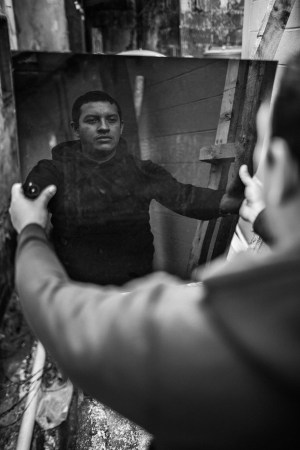
It’s been like an extended drug trip, or time in our own padded cell.
Lockdown forced us inside.
It’s been a test period of how we deal with discomfort and difficult emotions, coming in waves and swells, affected by many things out of our control: New rules and regulations, news about infection numbers and findings about transmission avenues; information, misinformation (and disinformation) and disagreements over what is which. And most recently, watching protests and crackdowns around the world over the wrongful death of George Floyd and the long list of police murders before him.
Quarantine and self-isolation time (and four planets that went retrograde in May) has given us an unprecedented opportunity to watch and reflect on the monumental problems in our societies around economic and racial inequality that stayed relatively ignored until now. It’s also illuminating to see what people will find it worth breaking quarantine for. (I’m not condemning anyone staying home either–this virus asks for the careful examination of our priorities and responsibilities. There are risks and cautions to weigh for every one of us.)
During this time, I found myself dealing with disappointment more often than I wished. And despair. Loneliness. Powerlessness. Fear relating to income and the future. Frustration at ignorance and perceived lack of discernment, and more disappointment. Sometimes, sprinkles of hope and encouragement. Bright sparks of hilarity when humour could be found. Warm delight whenever I found a moment of connection or insight. Awe. Disbelief.
It’s a lot, these new events and issues that keep demanding our attention. 2020 was always that year that astrologers anticipated, but the scale at which things have unfolded has still managed to surprise us. Well, I’m OK admitting that it surprised me.
It’s OK to be Not OK.
I found myself saying the above to the kid one night, when she’d had a rough school day before lockdown. I find myself saying this to myself a lot lately. The pervasive push towards perpetual positivity, consciously or subconsciously (more about toxic positivity), has done us no favours in teaching us how to deal with the uncomfortable, be it our own emotions, or the unpleasant but pressing problems in our communities and environment.
And now we can’t run from either.
Herein lies the opportunity.

Photo by Luis Quintero from Pexels
I’ve found self-awareness the key that determines if an individual is able to examine and change their reactive patterns and behaviors, including unhealthy ways of handling uncomfortable emotions. This is different from self-consciousness, in which one is worried primarily about how they appear to others.
Self-awareness is the willingness and clarity with which one examines their internal landscape: How they are feeling, what they are thinking, how they “work”, the relationship they have to different thoughts, emotions, beliefs, and external triggers. Some degree of self-awareness is needed to realise that other people simply think, feel and behave differently to the same things.
Having grown up in a largely authoritarian society, I found it common to meet adults who seem to subconsciously believe that there is only ever one “correct” way for everyone to think and feel about certain stimuli. Grief, shock, disappointment and shame, even disagreement, is unpleasant and messy, thus largely met with denial, dismissal, stoicism, or suppression (as we’ve done with the difficult problems in our societies; As within, so without).
In quarantine, we have almost no choice but to sit with our difficult emotions, as well as the success or failure of our coping mechanisms. Finally, we can learn that it’s not how we deal with difficulty “correctly”, but simply, we just need the strategies that actually work.
Systemic change.
Learning and Testing
“The best is the enemy of the good.”
Italian proverb, and Voltaire
Change scares people, yet it is constantly present and necessary. What we’re collectively facing are the ways that the current systems of caring for ourselves and our communities have not worked. While I understand the desire of many to get things “back to normal”, we need to aim for better. Better leaders and ideas, better systems, and better ways of coping with uncomfortable subjects and feelings. It’s likely going to take brave experimentation and tinkering.
Here is where I’m cautious with my optimism. If we want to be proactive and responsible, learning is required. But learning isn’t just taking in information, it also involves making mistakes. This is what I find trips many people up: We hate making them. We hate the shame and embarrassment of having them caught. We try to avoid mistakes by staying in arguments about how no perfect solutions exist. But this perpetuates the cycle of avoidance. [Apply your new emotional coping methods here.]
I have no easy answers. But I have, in my own way, loved the time that I’ve been given so far to observe and try to make sense of “this timeline”. Now that the moon’s north node has moved into Gemini, being mutable, adaptable, open to ideas, and changing our minds is the heavens’ gift to humanity for the next two and a half years. I hope we grasp this ring.
References / Further Reading
- How to administer emotional first aid
- Top 10 Defence Mechanisms
- Welcome to the world of toxic positivity: The trend which is ruining our lives
